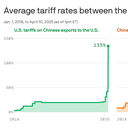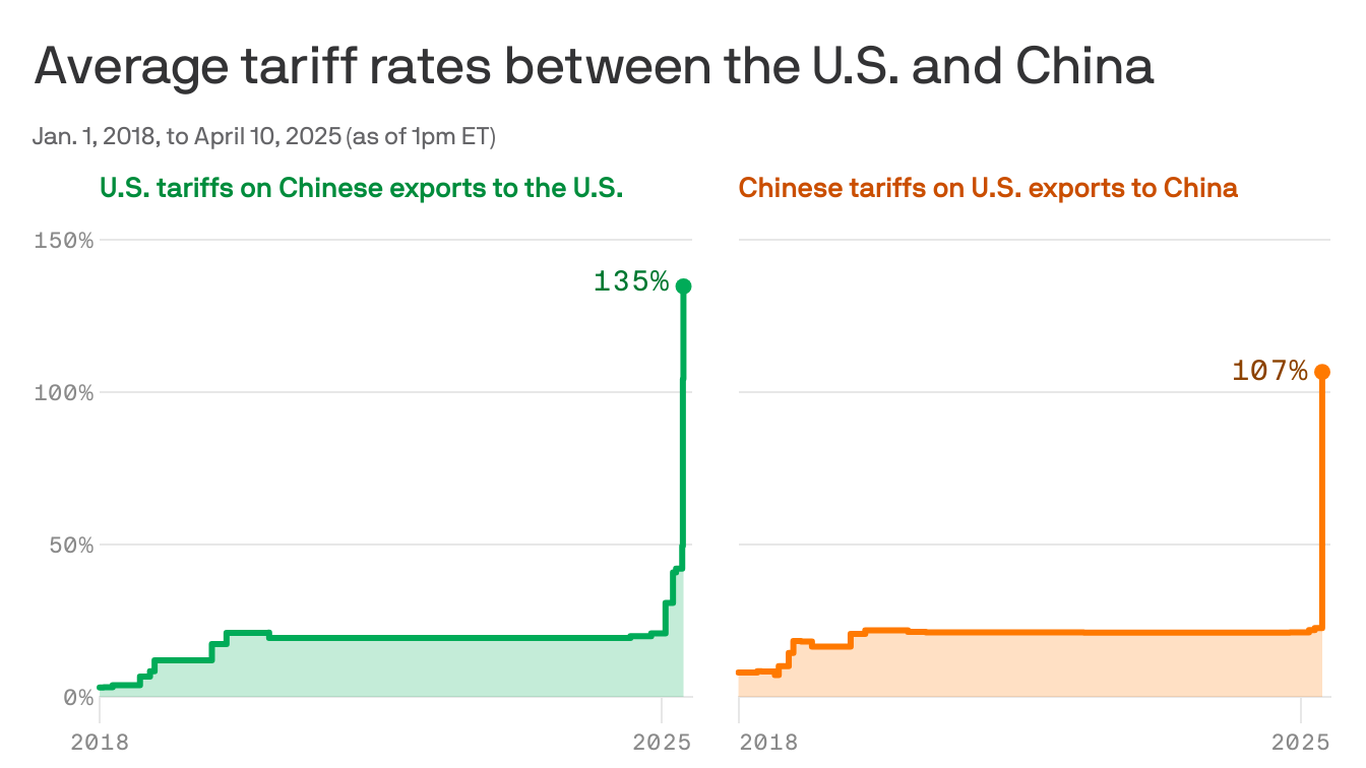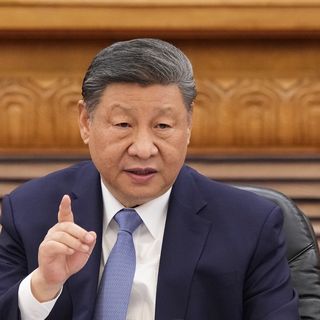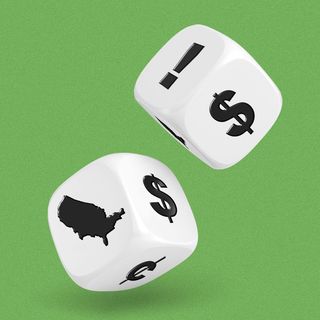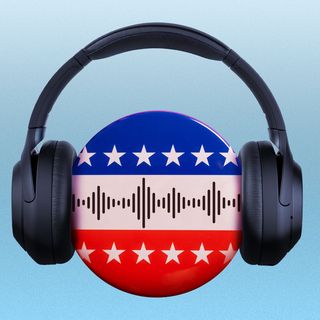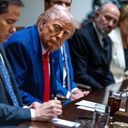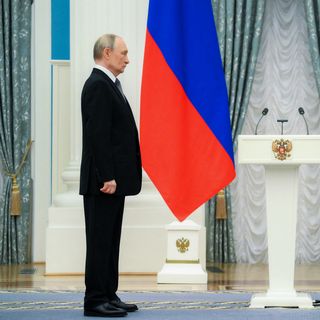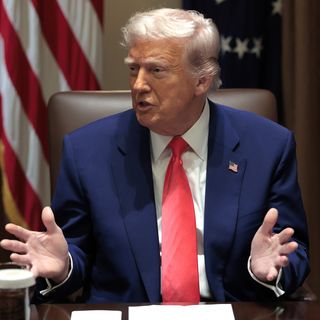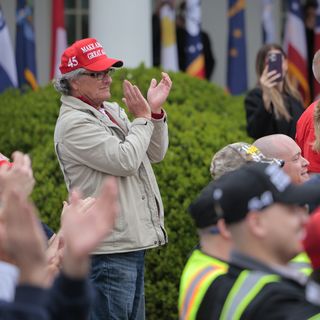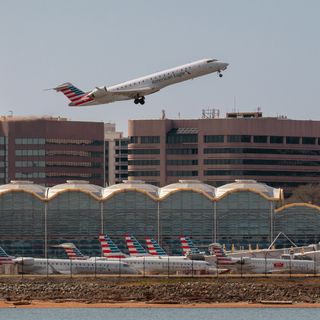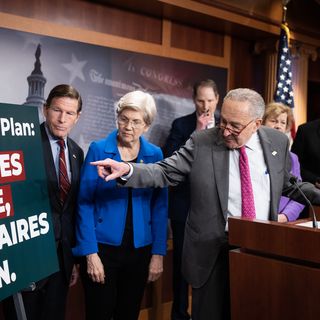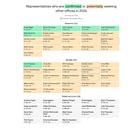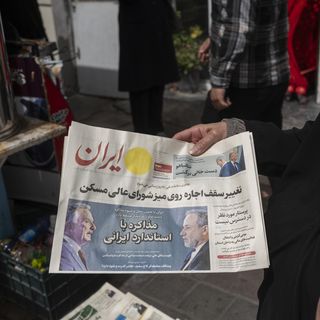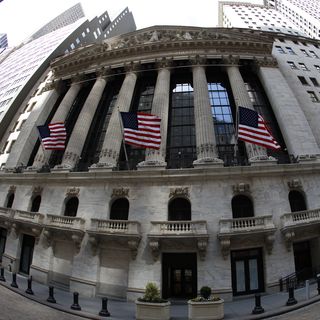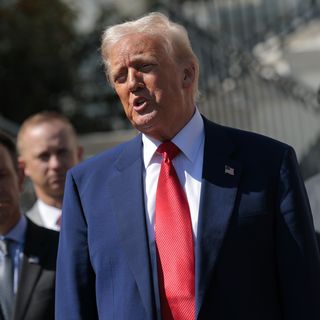Despite tariffs, Trump misses crucial factor to a China trade war
To fight a trade war against China, most foreign policy experts would say that you need allies.
Why it matters: Over the past few months, the White House antagonized pretty much all its friends on the global stage, making it that much harder to carry out what is now a full-blown tariff battle with China.
The big picture: China is a formidable economic force, the second-largest economy in the world, with significant resources like a vast labor supply, manufacturing heft, a growing electric vehicle industry and expanding military might.
- "On critical metrics, China has already outmatched the United States," write the authors of a sobering new piece in Foreign Affairs.
Zoom in: The best shot the U.S. has at holding its economic edge is in forging partnerships, Kurt Campbell and Rush Doshi write: "China possesses scale, and the United States does not — at least not by itself."
- "Because its only viable path lies in coalition with others, Washington would be particularly unwise to go it alone in a complex global competition."
The intrigue: The authors, who both worked on foreign affairs in the Biden administration, wrote the piece before "Liberation Day."
- But we "kind of saw that coming," Doshi, now a professor of security studies at Georgetown University and director of the China Strategy Initiative at the Council of Foreign Relations, tells Axios.
Zoom in: Such a coalition would go beyond the traditional post-Cold War frame of the U.S. playing a protector role. This would be more about forging economic partnerships.
- "I'm talking about us all getting together with our allies, putting tariffs or regulatory barriers up together to protect our industries from China's massive export capacity," Doshi says.
- "Ideally the U.S. would lower barriers between its allies, to put market share together so that our companies have a bigger playing field."
But right now, U.S. allies have the tariffs of Damocles hanging over their heads, says Wendy Edelberg, a senior fellow in economic studies at the Brookings Institution.
- On Wednesday, President Trump announced a 90-day pause on his "reciprocal" tariffs, and it's not the kind of pause that refreshes.
- "It's not like other countries know for certain that they even have a reprieve," Edelberg says.
By the numbers: U.S. tariffs on China now average 134.7%, per a calculation from the Peterson Institute for International Economics.
- China's been retaliating, this morning raising tariffs on U.S. goods even more to 125%. It could end very badly, though many expect some kind of deal or postponement.
- "At current tariff levels, U.S. exports to China are no longer marketable," China's tariff commission said in a statement quoted this morning in the Wall Street Journal.
- "If the U.S. insists on playing the numbers game with tariffs, China will disregard it." The statement adds that China will "fight" if the U.S. persists in harming its interests.
Yes, but: "We can put America first and work with other countries at the same time," a White House official tells Axios. "The U.S. is not acting alone in acting on China's unfair trading practices."
- They note many countries have initiated anti-dumping World Trade Organization investigations against China, and that "even Russia is imposing higher duties on Chinese EV cars."
For the record: "President Trump is playing chess while the Chinese are playing checkers, to the detriment of their economy and their people," says Harrison Fields, a White House spokesperson.
Flashback: The trade war with China during the first Trump administration ended with an agreement. Among other things, China said it would buy $200 billion worth of American imports.
- That didn't happen. Partly, the coronavirus pandemic got in the way, but other factors were also at play.
- "Today the only undisputed 'historical' aspect of that agreement is its failure," Chad Bown wrote in a 2022 piece for the Peterson Institute.
Reality check: The current Chinese economy is in a bad place. Consumer prices declined for the second month in a row, per data out Wednesday, a worrying sign deflation might be setting in. Unemployment is rising.
- A trade war with its biggest foreign trading partner is only going to add to its woes.
- Still, China's leaders believe their country is better able to withstand the fight, Han Lin, the Asia Group China director in Shanghai, said on BBC Business Matters on Wednesday.
The bottom line: "They believe they could endure pain longer than the U.S. could. Of course, we'll see that thesis tested over the next several months."
